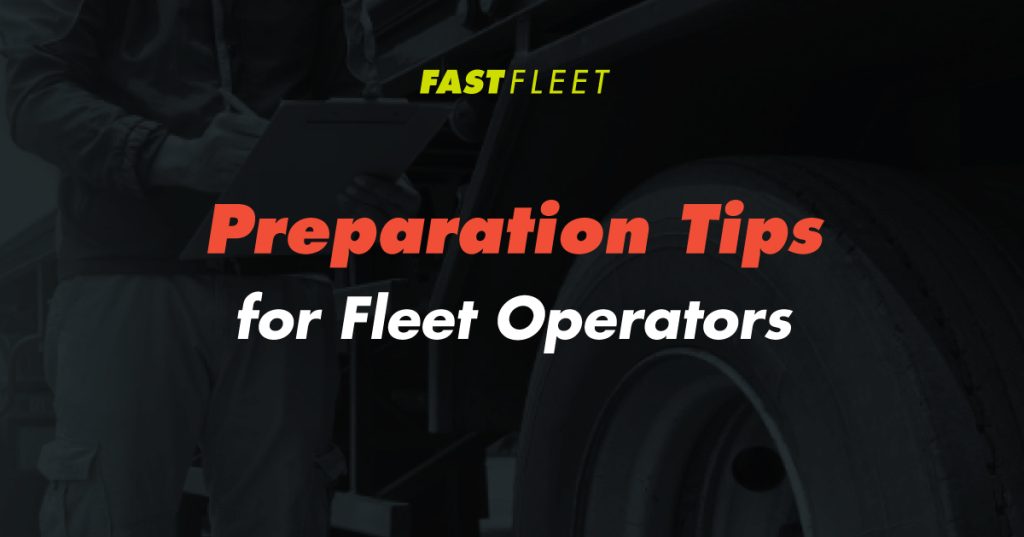Why Annual CVSA Roadcheck Inspections Are Crucial for Fleet Safety and Compliance: Preparation Tips for Fleet Operators
The annual Commercial Vehicle Safety Alliance (CVSA) Roadcheck Inspections play a critical role in maintaining fleet safety and compliance.
These comprehensive inspections help ensure that commercial vehicles meet safety standards, reducing the risk of accidents and enhancing operational efficiency.
This article explores the importance of CVSA Roadcheck Inspections and their impact on fleet operations and offers practical tips for fleet operators to prepare effectively.
Understanding CVSA Roadcheck Inspections
CVSA Roadcheck Inspections are annual events conducted to ensure the safety and compliance of commercial vehicles.
These inspections are the largest targeted enforcement program on commercial motor vehicles in the world, taking place over a 72-hour period each year. During this time, inspectors conduct a thorough assessment of vehicles and drivers, focusing on various safety aspects.
The annual schedule of these inspections is planned well in advance, and each year, the CVSA announces specific areas of focus.
These areas may include brake systems, lighting, cargo securement, and hours-of-service compliance.
By concentrating on particular safety issues, the CVSA aims to address the most critical aspects of commercial vehicle safety.
The Commercial Vehicle Safety Alliance (CVSA) was established to enhance commercial vehicle safety through uniformity, compatibility, and reciprocity of enforcement efforts.
The Roadcheck program was initiated in 1988 to promote safety on North America’s highways.
Over the years, the inspection process has evolved, incorporating new technologies and addressing emerging safety concerns.
Key milestones in the program’s evolution include the introduction of electronic logging devices (ELDs) to monitor hours of service, enhanced training for inspectors, and increased focus on specific safety issues each year.
These developments have made the Roadcheck Inspections more effective in identifying and addressing safety risks.
Importance of CVSA Roadcheck Inspections
Safety Assurance:
CVSA Roadcheck Inspections play a vital role in ensuring the safety of commercial vehicles on the road. By identifying and addressing safety violations, these inspections help reduce the risk of accidents.
According to the Federal Motor Carrier Safety Administration (FMCSA), the Roadcheck program has significantly contributed to lowering the number of crashes involving commercial vehicles.
Statistics show that vehicles with critical violations are more likely to be involved in accidents. For example, brake-related violations are a common cause of commercial vehicle accidents.
The CVSA’s focus on brake systems during inspections helps ensure that these critical components are in good working order, thereby enhancing overall road safety.
Compliance with Industry Standards:
Roadcheck inspections also play a crucial role in ensuring compliance with federal and state regulations.
Non-compliance can result in severe repercussions, including fines, operational disruptions, and potential legal liabilities.
During the Roadcheck, inspectors examine various compliance aspects such as vehicle maintenance, driver qualifications, and hours of service.
Fleets that fail to comply with these regulations face penalties that can impact their bottom line.
For instance, the FMCSA imposes fines for hours-of-service violations, which can accumulate quickly and become a significant financial burden for non-compliant operators.
Enhancing Fleet Reputation:
Maintaining compliance and safety through regular inspections helps enhance a fleet’s reputation and build customer trust.
Clients and partners are more likely to choose companies with a proven track record of safety and reliability.
A strong safety record not only attracts business but also contributes to long-term success by reducing downtime and increasing operational efficiency.
Fleets that consistently pass CVSA Roadcheck Inspections demonstrate their commitment to safety, which can be a significant competitive advantage.
In the long run, a reputation for safety and compliance can lead to better business opportunities and higher customer satisfaction.
Preparing for CVSA Roadcheck Inspections
Pre-Inspection Checklist:
Preparing for CVSA Roadcheck Inspections requires a comprehensive approach.
Fleet operators should follow a detailed checklist to ensure that their vehicles and drivers are ready for inspection.
Key items on this checklist include:
- Brake systems: Check for worn brake pads, proper adjustment, and functioning brake components.
- Tires: Inspect for adequate tread depth, proper inflation, and any signs of damage or wear.
- Lights: Ensure all lights, including headlights, brake lights, and turn signals, are operational.
- Driver documentation: Verify that all necessary documentation, such as licenses, medical certificates, and logbooks, are up to date and readily available.
Driver Training and Education:
Training drivers on inspection procedures and requirements is crucial for successful CVSA Roadcheck preparation. Regular safety training sessions can help drivers understand what inspectors look for and how to maintain compliance.
Conducting mock inspections can also be beneficial, allowing drivers to practice and become familiar with the process.
Emphasizing the importance of compliance and safety in training programs helps create a culture of safety within the fleet.
Drivers who are well-informed and prepared are less likely to commit violations and more likely to pass inspections successfully.
Regular Maintenance Practices:
Regular vehicle maintenance is essential for staying prepared for CVSA Roadcheck inspections. Implementing a preventive maintenance program helps address potential issues before they become significant problems.
Best practices for maintaining critical vehicle components include:
- Scheduled inspections: Conduct routine inspections to identify and fix any issues with brakes, tires, lights, and other critical systems.
- Detailed records: Keep comprehensive records of all maintenance activities, repairs, and inspections. These records can be useful during Roadcheck Inspections and for tracking the vehicle’s maintenance history.
Maintaining a proactive approach to vehicle maintenance ensures that the fleet remains in good working condition and reduces the likelihood of safety violations during inspections.
Fleet operators should start their preparation for the CVSA Roadcheck inspections early.
Utilizing available resources, such as pre-inspection checklists, driver training programs, and regular maintenance schedules, is essential to ensure your fleet is compliant and road-ready.
Early preparation not only helps in passing inspections but also enhances overall fleet safety and operational efficiency.
Additionally, for those inevitable road emergencies, partnering with a reliable service provider like Fast Fleet can make all the difference.
Fast Fleet offers 24/7 roadside repair services, ensuring that your fleet remains operational and compliant, even in emergencies. Our expert technicians are always ready to assist, minimizing downtime and helping you maintain compliance with safety standards.
Contact Fast Fleet today to schedule services or consultations. Ensure your fleet is always road-ready and compliant with the latest regulations.
Visit our website or call us to learn more about how Fast Fleet can support your operations.
















